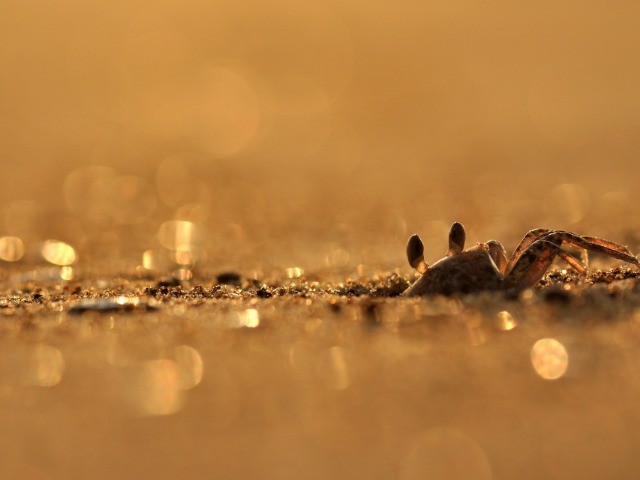National
India's NDCs a climbdown from the ambition expressed at Glasgow
On August 3rd, the Union Cabinet ratified the pledges made by Prime Minister Narendra Modi in Glasgow in November 2021. However, India's Nationally Determined Contribution (NDCs), which is a formal communication to the United Nations, spelling out steps to be taken toward climate change mitigation, were fewer than the pledges it committed to in Glasgow. Out of the five commitments Mr Modi laid out, referred to as 'Panchamrit’ by the government, a press statement, following the Cabinet approval, only mentioned two. Namely that India is committed to reducing the emissions intensity of its GDP by 45 per cent by 2030 and achieving 50 per cent cumulative electric power installed capacity from non-fossil fuel-based energy resources by 2030. India’s last NDC was on October 2, 2015.
Read more: Union Cabinet approves India’s climate pledges | The Hindu
New species of trapdoor spider named after renowned biologist from West Bengal
Scientists from West Bengal discovered a species of trapdoor spider and named it after Sir Jagadish Chandra Bose, the renowned biologist and physicist from West Bengal. Zoologist Suman Pratihar and his BSc student in 2020, Julia Khatun, collected the species from a roadside burrow near a plantation. The species is now named Heligmomerus jagadishchandra. Trapdoor spiders are some of the most poorly studied invertebrates in the country. They are an ancient species that build camouflaged trap door burrows instead of webs. "This is the first time that an animal/insect has been named after Bose, though many plants have been named after him," says Pratihar.
Read more: New trapdoor spider found in WB, named after JC Bose | Deccan Herald
New species of freshwater crab discovered from Karnataka
A new species of freshwater crab from the genus Ghatiana, named Ghatiana dvivarna, has been discovered near Bare in the Uttara Kannada district of Karnataka, India. First documented by forest guard Parashuram Bajantri and naturalist Gopalkrishna Hegde, the detailed taxonomic work that followed was led by Dr Sameer Kumar Pati and Tejas Thackeray. The specific epithet ‘dvivarna’ is derived from the Sanskrit language which means 'bicolour'. The research article describing the new species is published in Nauplius, an international journal published by the Brazilian Crustacean Society (BCS). The work is a result of the collaborative work of the Thackeray Wildlife Foundation, Zoological Survey of India (Pune) and the Karnataka Forest Department.
Read more: A new species of the freshwater crab genus Ghatiana, Pati and Sharma, 2014 (Brachyura: Gecarcinucidae) from the Central Western Ghats, India | SciELO - Brasil
More national headlines:
- New species of Miliusa spotted in Agasthyamala | The Hindu
- ESZ: Union Environment Minister assures filing of review petition in SC | The Print
You may also like to read
International
Drought declared in parts of England as drought in Germany hits new lows
The prolonged dry conditions, with some areas not receiving rain all summer, have seen the National Drought Group declare a official drought across swathes of England. The Environment Agency has moved into drought in eight of its 14 areas. Namely, Devon and Cornwall, Solent and South Downs, Kent and south London, Herts and north London, East Anglia, Thames, Lincolnshire and Northamptonshire, and the east Midlands.
The ongoing drought in Germany hit new lows as the Rhine river fell below 40cm on parts of its key route for transporting fuel, wheat and other commodities. According to Germany’s Federal Waterways and Shipping Administration, water levels are estimated to drop by a further 10-15cm over the coming three or four days.
Read more: Drought declared across eight areas of England | The Guardian, Rhine water levels fall to new low as Germany’s drought hits shipping | The Guardian
Rainwater no longer safe to drink anywhere on Earth
According to a paper published in the journal Environmental Science & Technology by researchers at the University of Stockholm, rainwater is no longer safe to drink anywhere on Earth, owing to the presence of hazardous chemicals called per- and polyfluoroalkyl substances (PFAS). There are thousands of PFAS, all human-made, used in food packaging and water-repellent clothing, among other things. They are known as 'forever chemicals', as they never break down and build up in people, animals and the environment. Peer-reviewed articles have even linked PFAS to some cancers.
Read more: Rainwater No Longer Safe to Drink Anywhere Due to 'Forever Chemicals' | Business Insider







